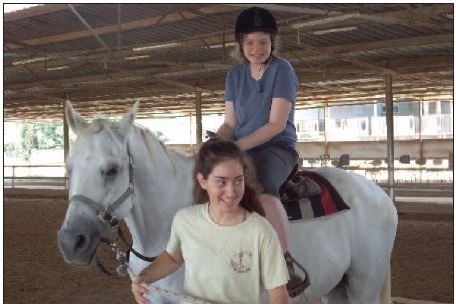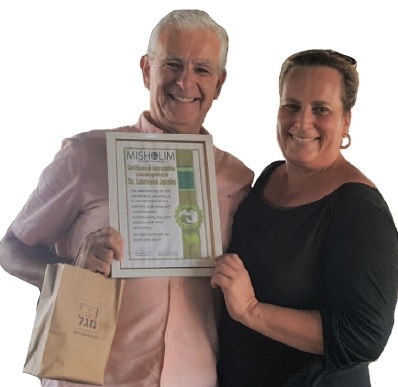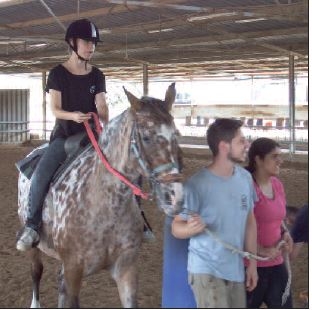Horses, Dogs and Hope
In surroundings as cozy and comfortable as a pair of messy old shoes, the Kibbutz Magal riding therapy center is a minimalistic, simple arena, belying the huge impact that it has on those who attend.
Twice a week, and for two consecutive years, groups of schoolchildren with developmental disabilities or severe behavioral problems, turn up at the therapy center where they learn to interact with animals, and thereby become better at interacting with people.
ESRA's relationship with Magal started ten years ago with an afternoon center for severely disabled children, in partnership with the Ministry of Welfare and the Ilan organization for the disabled. When these partners pulled out in 2017, it was decided to start something new.
The result was Learning through Nature, an ongoing ESRA project in partnership with the Misholim Foundation, now in its second successful year. Mrs. Anat Lavi-Kowarski, Adv., who had benefitted from her stay at Kibbutz Magal as a young girl, today runs the center and infuses it with her natural warmth and innate therapeutic approach. So, what exactly do they do there, who does it, and how does it help?
Augmenting the small dedicated staff of kibbutz members responsible for the horses and other animals, is a team of people affectionately referred to as the Shin-Shin's (Shnat Sherut = Service Year). These are young people who have deferred their army service to do a year's volunteer work for the benefit of Israeli society. They are the children's teachers and role models, and they are supervised and trained by a cadre of licensed therapists. Another member of the staff is ESRA volunteer Laurence Jacobs, a retired dentist. He is there twice a week providing an example of a father figure the likes of which many of these children have not experienced—a man who is warm, friendly, patient, attentive, and helpful. In addition, he throws some English into his interactions, which the children pick up, and, at the same time, he learns from them and gets to improve his Hebrew—the perfect volunteering scenario of give and get back.
Another part of the "staff" are the children themselves, who are in their second year at the center. They act as partners, helpers, and mentors to the newcomers. It is a delight to watch. During our visit, a group of developmentally disabled children, accompanied by a similar group now in their second year, were about to mount their horses for the first time. One girl said, "I'm afraid. I'm not getting on a horse today." A second year girl went over to her and said, "I was exactly like you the first time. Come, come with me." The support and encouragement helped the first-timer over her fear, while her mentor proudly gained experience and confidence.
Aside from learning to ride a horse, each child is assigned a dog, which he/she interacts with, cares for, and trains. These interactions with animals prove to have an amazing effect. Instead of focusing on the children's behavior and trying to influence them to change or control it, the focus is on the behavior of their animal. "Like small children," Anat explains, "animals don't hide their feelings. If they are frightened, they show it. If a child's animal displays fear, or confusion, we help the child figure out what he might have done that made the animal frightened or confused, and how he might give the animal a different message."
The results of this learning experience, of interacting with and caring for their animals, have been nothing short of remarkable. The children gain a new feeling of self-respect and confidence. They learn to be mindful of feelings, their own and as well as the other's, and feelings and reactions become understandable and legitimized.
The only downside of the program is its limitation. Anat wishes they could do more, for more children, from more schools. So do we. It's all a matter of funding.
By being an ESRA member and active participant, you can help, and if you'd like to do more, contact Nina Zuck, ESRA projects coordinator This email address is being protected from spambots. You need JavaScript enabled to view it..










Comments